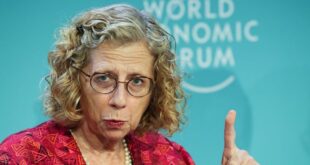OTTAWA (Reuters) – Canadian Prime Minister Justin Trudeau made massive changes to his cabinet last week in a move political analysts say is more theater than substance, but the Liberal leader’s close advisers say it shows his determination to seek a fourth election victory.
With a string of recent polls showing the left-leaning Liberals trailing their right-of-center Conservative rivals after almost eight years in power, Trudeau changed or shifted three-quarters of his cabinet.
A cost-of-living crisis, a sharp rise in interest rates, and a chronic housing shortage have given the opposition Conservative leader Pierre Poilievre ammunition to attack Trudeau, accusing him of feeding price increases with profligate government spending, calling it “Justin-flation.”
Poilievre’s blows are leaving a mark. An Abacus Data survey published on Wednesday showing a 38% to 28% lead in public support for the Conservatives, enough to ensure their victory were an election held now. Other polls have shown a more narrow difference between the two parties.
“There’s huge fatigue with this government,” said Frank Graves, president of EKOS Research polling company. With the shuffle, “they’re trying to make it look new, even though it’s not,” he said.
Trudeau described the shake-up as a way to build up his core economic team in response to cost-of-living challenges that Canadians have grappled with for more than two years.
But with the influential Finance Minister Chrystia Freeland, who is also deputy prime minister, keeping her job, some analysts are questioning the real impact of the changes.
“I don’t sense any change of direction. Given that the main players – the finance minister and the prime minister – are signaling that it’s business as usual,” said Robert Asselin, senior vice president of policy at the Business Council of Canada. He said the shuffle was “a bit of theater.”
Trudeau’s minority government has a deal with left-leaning New Democrats, who have promised to keep the Liberals in power until 2025. But the deal is not binding and Trudeau needs his campaign team ready to go at any time.
Trudeau, 51, is pressing the reset button to gear up for a fight to become the first leader since 1908 to win four consecutive elections, two senior government sources said.
People close to Trudeau said he is showing no signs of stepping down and letting someone else take over after winning a majority in 2015, and minorities in 2019 and 2021.
Trudeau isn’t making a “beeline for the exit,” one of the sources said. “He’s in it to win it.” The new cabinet is “ready to go out on the campaign trail,” the second source said. Neither source was authorized to speak on the record.
By the time the next election is due in 2025, Trudeau will have been in power for 10 years, and Canadians could be in the mood for a change. No Canadian prime minister since Wilfrid Laurier in 1908 has won four consecutive elections.
Even in the 2021 race, Liberal lawmakers who campaigned door-to-door said they had spoken with many voters who had grown weary with Trudeau. However, the central bank has said that the headline inflation will return to its 2% target before the next election is due.
“Cost of living is a household wallet issue, and for now it is the ballot issue. But only for now,” said Shachi Kurl, president of Angus Reid Institute polling company.
“Any advantage the Conservatives have on this may well evaporate if we see inflation and interest rates ‘normalize’ by the next election.”
(Reporting by Steve Scherer; Editing by David Ljunggren and Marguerita Choy)
 BeritaKini.biz Berita Viral Terkini di Malaysia
BeritaKini.biz Berita Viral Terkini di Malaysia





